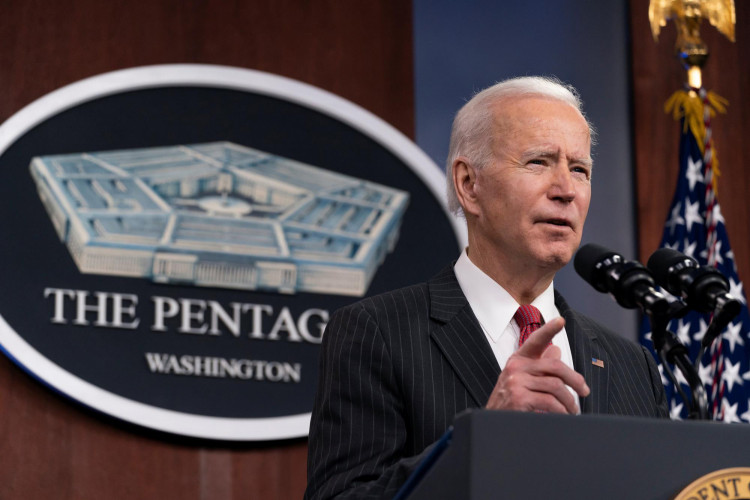The United States and its allied democracies should launch their own version of China's Belt and Road Initiative, which has won dozens of new allies for China since it was launched in 2013 and still remains the world's largest infrastructure program.
President Joe Biden on Friday said he suggested to British Prime Minister Boris Johnson in a phone call the West should have a massive infrastructure plan to BRI.
He told Johnson he was concerned BRI will keep significantly expanding China's economic and political influence, especially among the many smaller countries to the west and south of China.
"I suggested we should have, essentially, a similar initiative, pulling from the democratic states, helping those communities around the world that, in fact, need help," said Biden in a talk to reporters at the White House.
Biden also said China continues to assert its global dominance at the expense of the U.S. even as the world copes with the "fourth industrial revolution," which experts define as the massive automation of traditional manufacturing and industrial practices. Also called "Industry 4.0," this revolution relies on smart technologies, machine-to-machine communication, and the internet of things to boost automation.
"I see stiff competition with China," said Biden. "They have an overall goal to become the leading country in the world, the wealthiest country in the world, and the most powerful country in the world. That's not going to happen on my watch."
Biden said he and Johnson also talked a lot about the need for Britain and the U.S. "to stand together and deal with the whole notion of whether or not NATO stands together, whether we stand united, and whether or not I'd be able to come, and I hope I can, to NATO meeting. I think it's in late June."
He revealed one of the things I suggested the U.S. and UK do is to have an initiative similar to BRI "coming from the democratic states, helping those communities around the world."
BRI is China's global infrastructure development strategy launched in 2013 and has since seen China invest in nearly 70 countries and international organizations.
"Belt" is the "Silk Road Economic Belt," which is an overland routes for road and rail transportation through landlocked Central Asia along the historical trade routes of the Western Regions.
"Road" is short for the "21st Century Maritime Silk Road," and refers to Indo-Pacific sea routes through Southeast Asia to South Asia, the Middle East, and Africa.
Examples of BRI infrastructure investments are ports, railroads, roads, airports, and dams. BRI is the centerpiece of Xi Jinping's foreign policy.
Over the last few years, more than a dozen Latin American countries and 10 Caribbean nations have joined BRI.
Surprisingly, nearly all NATO member states in Eastern and Southern Europe have associations with BRI. As of mid-2020, over 2,600 projects amounting to $3.7 trillion are linked to BRI.
On the other hand, the non-profit U.S. think-tank, the Council on Foreign Relations, deems it unwise for the Western democracies to imitate BRI. CFR asserts the U.S. "cannot and should not respond to BRI symmetrically, attempting to match China dollar for dollar or project for project. Instead, the United States should focus on those areas where it can offer, either on its own or in concert with like-minded nations, a compelling alternative to BRI."
This strategy will have the advantage of leveraging core U.S. strengths, "including cutting-edge technologies, world-class companies, deep pools of capital, a history of international leadership, a traditional role in setting international standards, and support for the rule of law and transparent business practices."






